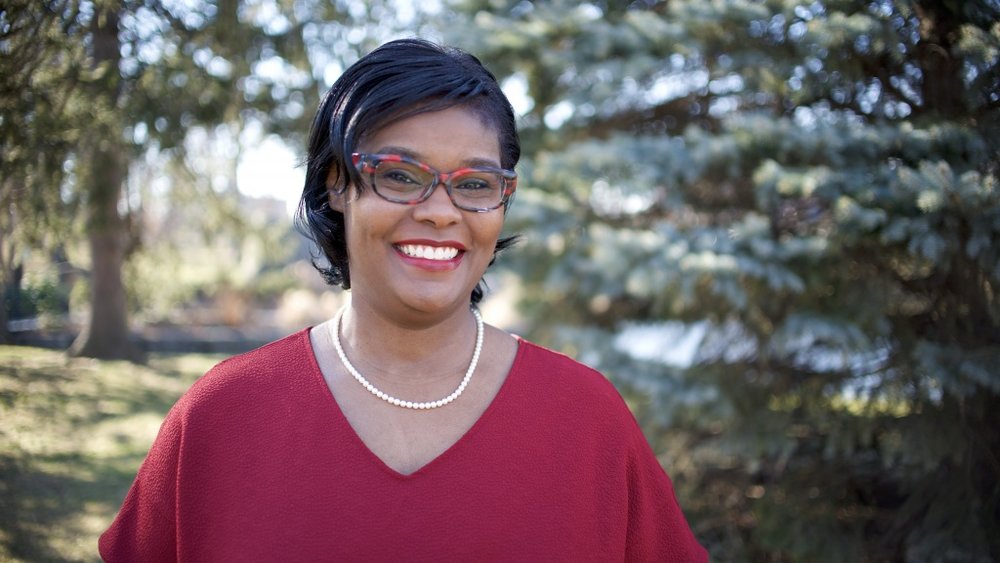Receive updates from the Harry T. Burleigh Society, as well as video recordings from our past performances.
Dr. Marti Slaten,
Executive Director & Co-Founder

What do concert spirituals mean to you?
I am fortunate to have been a teenager when the recordings of Kathleen Battle and Jessye Norman were in a fantastic height. I was eagerly taking private voice lessons while immersed in the beauty of their prolific output. It meant the world to listen to black women singing classical music that grew out of blackness and my faith tradition. Their singing of concert spirituals, in particular, opened me to a world of other singers and repertoire.
Concert spirituals have remained a source of worship, strength, and the repertoire in which I’m most vocally at home. The brilliance of the timeless nuances of the text, the melodies, the rhythms, and the possibilities for solo and choral singers astound me. They are, hands down, my favorite repertoire.
Tell us about your relationship with the Fisk Jubilee Singers.
While I was an undergraduate, I studied concert spirituals with wonder and the freedom of interdisciplinary approaches. My mentor, whom I sorely miss, Dr. Adrienne Lash Jones, was my first professor of African American Studies. She was also an alumna of Fisk University and a board member. Always encouraging my study and performance of concert spirituals, she introduced me to the long-standing exchange program between Fisk University and Oberlin College. With her guidance, along with a robust welcome from Fisk faculty, including Senor Marcellus Brooks, Mr. Lynwood Berry, Dr. L.M. Collins, Dr. Paul Kwami, Dr. Chris Duke, Prof. Valija Bumbulis, as well as Fisk’s student body—many of whom are my best friends—I studied at Fisk for a semester and had the privilege to rehearse and perform with the Fisk Jubilee Singers. I still marvel at Dr. Kwami’s profound gift as a conductor, especially in how he brings the spiritual significance of songs to fore in ways that support a singer’s technique.
I’ve never stopped thinking about the Fisk Jubilee Singers. My time as an exchange student was so impactful that the vocality of the campus was the subject of my dissertation, and Dr. Kwami and I have collaborated on several projects over the years.
What inspired you to program a weekend pairing Harry T. Burleigh and Ella Sheppard?
Since the 19th century, concert spirituals have grown into a rich repertoire, with many different styles. This is wonderful! At the same time, the vastness of the repertoire has also brought some confusion about the tradition and its emergence. I’ve learned through choral clinics how questions of performance practice and racial subjectivity can become stumbling blocks and lead one not to perform concert spirituals and/or engage them with misunderstanding about their place in western classical music. Burleigh Society President and Co-Founder, Lynne Foote, and I talk about this all the time, as well as about how Burleigh articulated and demonstrated the universality of concert spirituals. We want to make this better understood in the current moment, which inspired us to turn to leaders of the concertized form of spirituals, Ella Sheppard, Harry T. Burleigh, and the Fisk Jubilee Singers, to learn more about the emergence of the genre, as well as how it has changed over time.
What are you most looking forward to at the concert and conference?
There isn’t a moment that I’m not looking forward to! At the top of the list is singing with Dr. Paul T. Kwami, hearing and watching the Fisk Jubilee Singers perform “A Portrait Comes to Life,” seeing how the audiences are changed by hearing and thinking about Burleigh and Sheppard’s legacy, and afterwards—some rest!
